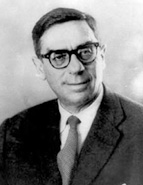

A writer, professor, and journalist from the Azores, as well as the author of numerous historiographical works, he was a native of Terceira Island (Azores). After attending secondary schools in Angra and Horta (Faial), he completed his secondary education in Coimbra, where he began his university studies in 1922. Initially enrolling in Law, he later transitioned to the History and Philosophy course (1924) and subsequently to Romance Philology (1925), completing the latter in 1931 at the University of Lisbon. There, at the Faculty of Arts, he began his academic career (1933–1971) and earned a doctorate with his thesis A Mocidade de Herculano até à volta do exílio [The Youth of Herculano until His Return from Exile] (1934).
He worked as a proofreader, editor, and reporter for the Lisbon newspapers A Pátria , A Imprensa de Lisboa , and Última Hora (1920–21), as well as for Humanidade , in Coimbra (1925). He contributed to numerous publications, including daily newspapers such as Diário de Lisboa and Diário Popular , and culturally significant journals like Seara Nova . He was particularly associated with publications from the second Modernist movement of the 1920s and 1930s ( Byzancio , Tríptico , Presença ), as well as with the notable trends of the 1940s ( Cadernos de Poesia , Variante , Aventura , Litoral ). He had his own columns in several outlets, such as the weekly Observador (1970–74). He founded the "academic republican newspaper" Gente Nova (1927–28), the important Revista de Portugal [Portugal Review] (1937–40), and directed the daily O Dia (1975–76). From the 1940s onwards, he regularly contributed to radio broadcasts and, in 1969, launched a television programme ( Se bem me lembro [As Far As I Remember], RTP, until 1975), which brought him unexpected popularity.
After his first trip to Spain (1923)—significant because he met Miguel de Unamuno in Salamanca, with whom he later corresponded, and Ortega y Gasset in Madrid, whom he interviewed for the Diário de Lisboa and later befriended in Lisbon (1942–46)—his academic career led him to teach abroad. He taught in France (University of Montpellier, 1934–36, where he would be awarded an honorary doctorate in 1960), Belgium (Université Libre de Bruxelles , 1937–39), and, from 1952 onwards, at various Brazilian universities (Rio de Janeiro, São Paulo, Bahia, Minas Gerais, Ceará, where he received an honorary doctorate in 1965). These teaching periods, whether short or long, had a significant impact on his work. As a speaker, he toured extensively across Europe, particularly from the 1950s until 1977. He also occasionally travelled to Africa (Angola and Mozambique, 1960) and the Americas (Canada, 1971).
This work is financed by national funds through FCT - Foundation for Science and Technology, I.P, in the scope of the projects UIDB/04311/2020 and UIDP/04311/2020.
